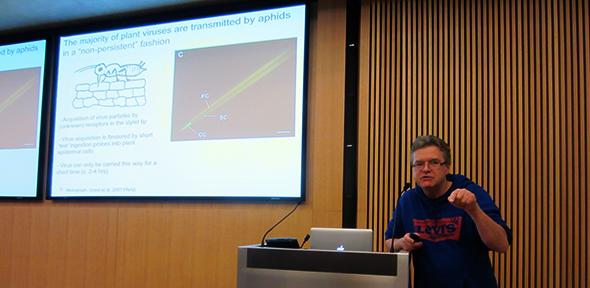
Working with various agencies, Dr John Carr from the University of Cambridge Department of Plant Sciences and colleagues aim to help resource-poor farmers by deploying plants to act as aphid-decoys, drawing the insects away from crucial crops and halting the spread of infection through these farmers' livelihoods.
About this research, Dr Carr said: "The work started almost accidentally when about five years ago a student and I noticed that aphids became sick or died when confined on a virus-infected plant. It's an illustration of how research driven by curiosity can lead to findings that could have a positive impact in the real world – in this case in combating crop-damaging insects and the viruses they transmit."
This work is funded by the Leverhulme Trust and the Sustainable Crop Production Research for International Development (SCPRID) programme, which is funded by the Biotechnology and Biological Sciences Research Council (BBSRC), the Department for International Development (DFID) and (through a grant awarded to BBSRC) the Bill & Melinda Gates Foundation. The Cambridge team worked with groups at Rothamsted Research (UK), Biosciences eastern and central Africa - International Livestock Research Institute Hub (BecA-ILRI Hub), Nairobi, Kenya, and the Eastern and Central Africa Bean Research Network (ECABREN) coordinated by the International Center for Tropical Agriculture (CIAT), Kampala, Uganda.


